The day Neil Armstrong landed in a small Scottish town
- Published
Neil Armstrong: Space pioneer honoured as the first 'Freeman of Langholm'
It is a moment they still talk about in Langholm 50 years after the event.
Nobody who was there will ever forget the day that the first man on the Moon, Neil Armstrong, visited his Scottish "home".
The small south of Scotland town - the traditional seat of Clan Armstrong - welcomed him as one of its own on a bright, chilly March day in 1972.
An invitation had gone out not long after his famous "small step" on the surface of the Moon in 1969.
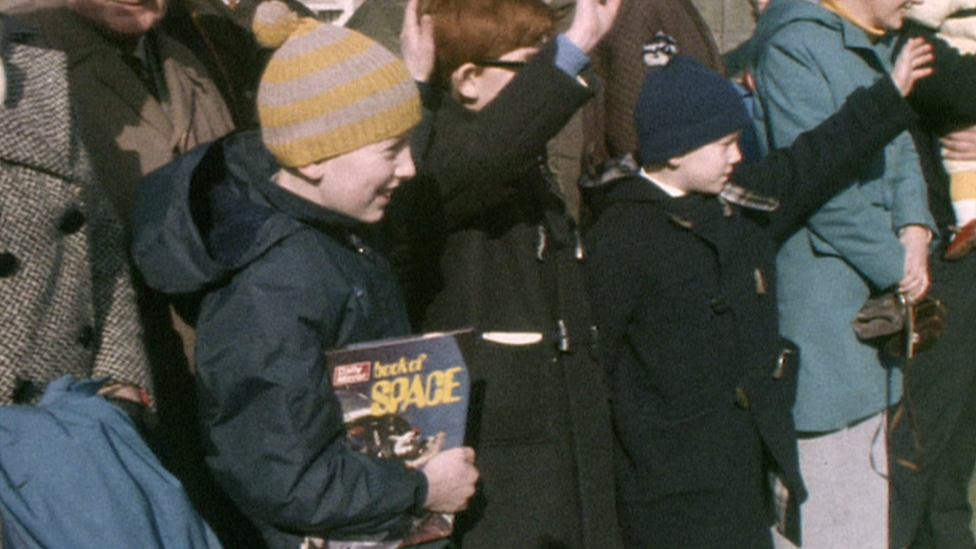
Huge crowds turned out for Neil Armstrong's visit to Langholm 50 years ago
Grace Brown, who was depute town clerk at the time, said they were stunned when he accepted.
"It was really the town council who decided that they would invite him to come along - we never thought he would," she said.
The astronaut - who died about a decade ago - had become one of the most famous names in the world, and it took a while for him to respond to the invitation.
"It was three years after," recalled Ms Brown.
"He was coming to Edinburgh University to deliver the Mountbatten Lecture so he made a day of it in Langholm.
"Now whether we would ever have got him if he hadn't been coming to Edinburgh I don't know but anyway it was quite a scoop for the town as you can imagine."
So, on 11 March 1972, the man who millions had watched make his "giant leap" on the lunar surface became a freeman of a town then probably best known for its thriving textile mills.
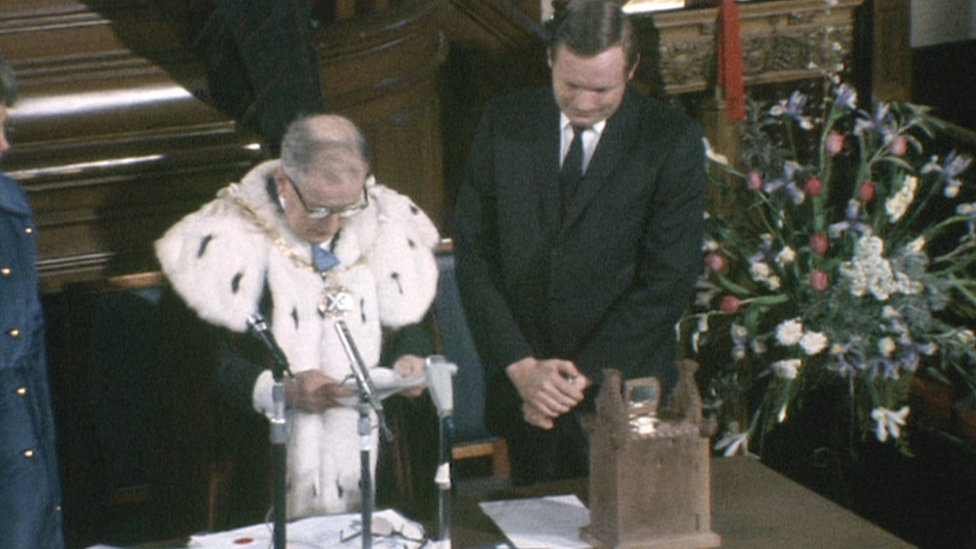
The astronaut was made a freeman of Langholm during his visit
"It was a beautiful blue sky - sunny but very cold," said Ms Brown.
"There were massive crowds, it was a bit like the common riding.
"It was amazing the number of people who came - and not only from Langholm but from all round about."
Armstrong himself told many of those who had gathered how proud he was to be associated with the historic heartland of his clan.
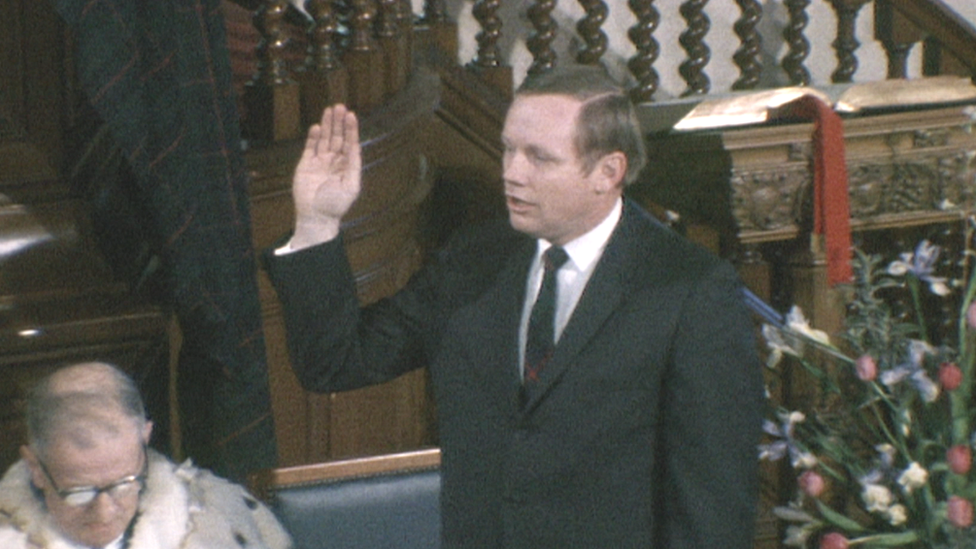
Armstrong said he now considered Langholm to be his home
"The most difficult place to be recognised is in one's own home town and I consider this, now, my home town," he said.
Ms Brown said the famous visitor was more keen to talk about Langholm than about himself.
"He was a lovely fellow really - he didn't want to speak about his exploits at all," she said.
"He was more interested in Langholm and the people and the history than he was about speaking about space at all.
"He was quite a modest, unassuming sort of person really."
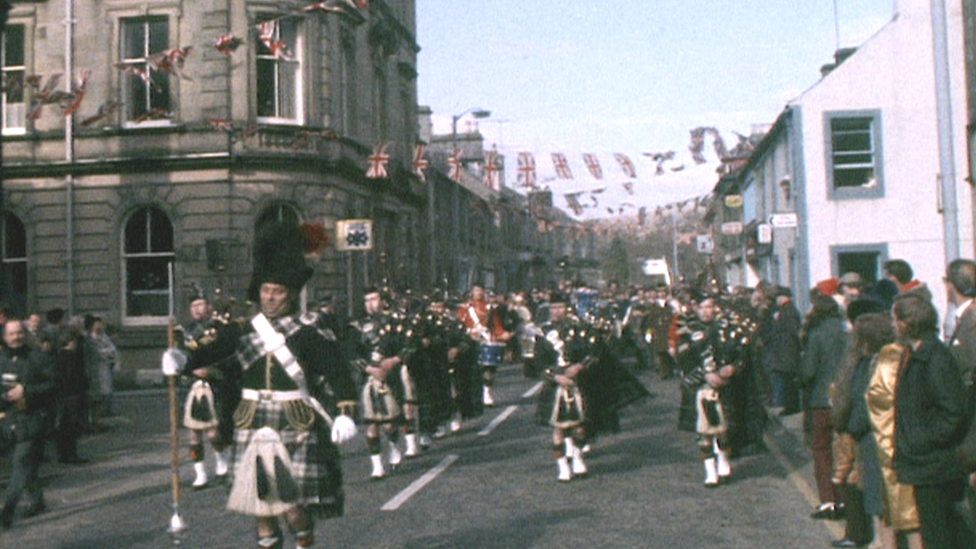
A cold sunny day greeted the man on the Moon when he visited southern Scotland
Ms Brown said there was something slightly unreal about the whole thing.
She said: "It was amazing, you couldn't believe it when you looked up at the the Moon at night and thought: 'That man walked up there and he walked through Langholm."
Gavin Graham was "a young 24-year-old" when Armstrong came to town.
"I was delighted because I'd followed the Apollo landings all night you know when it happened a few years prior to that and I was really quite interested in it," he said.
"It was a great effort to get probably the most well known person in the world to come to this wee town of Langholm, and I thought it was great."
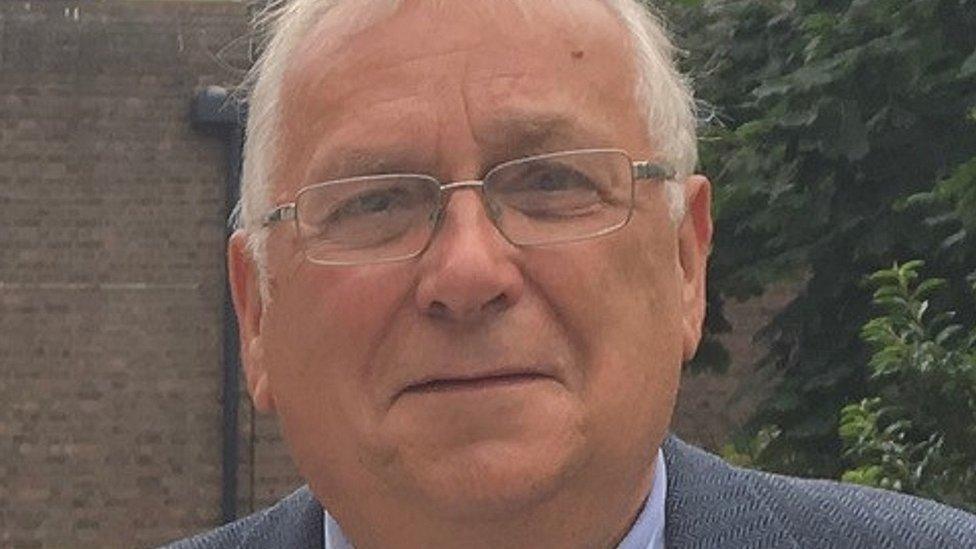
Gavin Graham was among the large numbers who turned out to see Neil Armstrong in Langholm 50 years ago.
Not everyone in the area was as lucky.
"What I didn't realise at the time was that all the mills in Langholm still continued working," said Mr Graham.
"Nobody got the afternoon off unless you were going to the reception or to the church.
"So a lot of Langholmites actually were still working that day and missed it."

Neil Armstrong became the first man to walk on the Moon in 1969
He said Armstrong definitely had a special aura about him as he accepted his honour as freeman of the burgh.
"There was certainly a presence to him - I can fully understand why he was chosen for that important role," said Mr Graham.
Half a century later, they plan to remember the visit once again in Langholm.
Mr Graham is part of efforts to mark a famous day in the town's history.
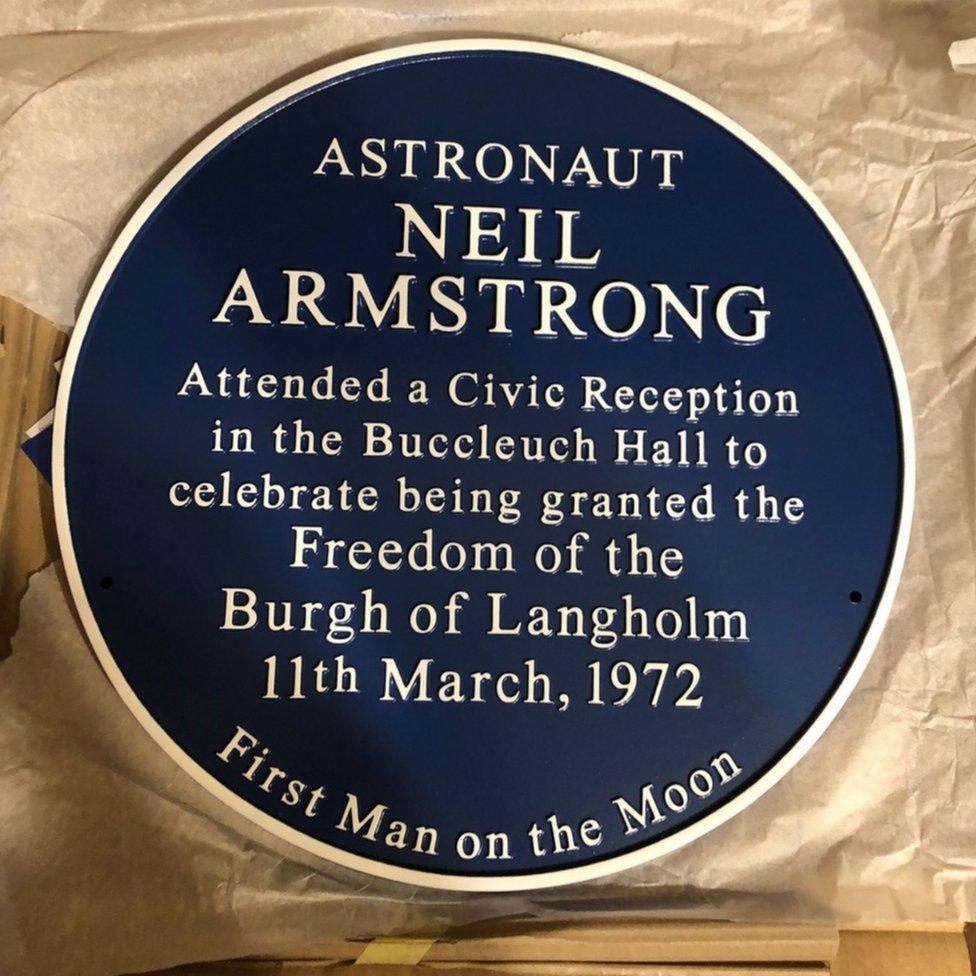
The events of 50 years ago are being marked in Langholm with the unveiling of a new plaque
"I think it's important that we remember our heritage," he explained.
"This was probably one of the most remarkable events in science and it's something that we felt we had played a part in.
"I know that it was probably hundreds of years prior that his ancestors had lived in Langholm but you know, it still was important for our little town."
The event is being remembered in Langholm with an "After Moon Tea" at its Buccleuch Centre.
A plaque will also be unveiled in honour of the visit of their famous son which is likely to be talked about for some time to come.
Related topics
- Published15 July 2019

- Published25 August 2012